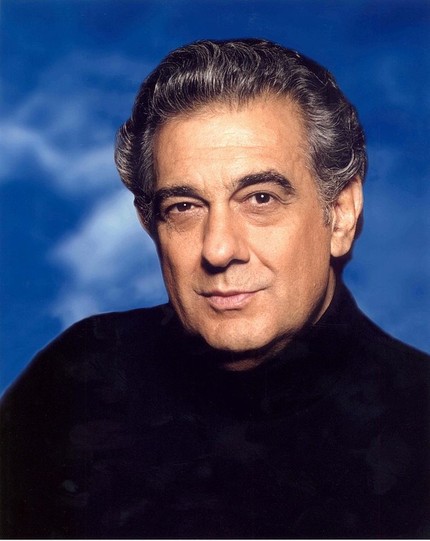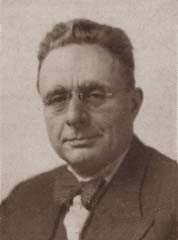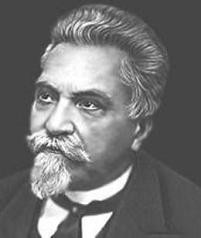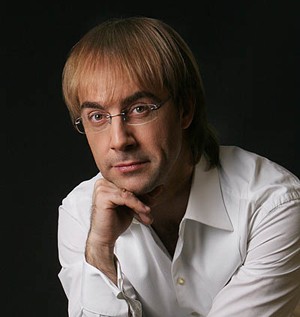
Plácido Domingo (Plácido Domingo) |
Plácido Domingo

José Placido Domingo Embil was born on January 21, 1941 in Madrid into a family of singers. His mother (Pepita Embil) and father (Plácido Domingo Ferer) were well-known performers in the zarzuela genre, the Spanish name for a comedy with singing, dancing and spoken dialogue.
Although the boy entered the world of music from early childhood, his hobbies were varied. At the age of eight, he already performed before the public as a pianist, later he became interested in singing. However, Placido passionately loved football and played in a sports team. In 1950, the parents moved to Mexico. Here they successfully continued their artistic activities, organizing their own troupe in Mexico City.
“At the age of fourteen… my parents were faced with the question of whether to prepare me for a professional career as a musician,” Domingo writes. “Finally, they decided to send me to the National Conservatory, where students studied both music and general education. It was difficult for me at first. I loved Barajas, got used to him and adapted to my new teacher for a very long time. But I believe in la fona del destino, in providence, everything that happened in my life usually turned out for the best. Indeed, if my teacher were alive, I might not have ended up in the conservatory and my fate would not have happened that revolution that took place soon on this new life path. If I had stayed with Barajas, I would most likely have aspired to become a concert pianist. And although playing the piano was easy – I read well from the sight, had a natural musicality – I doubt that I would have made a great pianist. Finally, if there were no new circumstances, I would never have started singing as early as it happened.
At the age of sixteen, Placido first appeared in the troupe of his parents as a singer. In the theater of zarzuela, he held several performances and as a conductor.
“Manuel Aguilar, the son of a prominent Mexican diplomat who worked in the United States, studied with me at the conservatory,” writes Domingo. “He always said I wasted my time on musical comedy. In 1959 he got me an audition at the National Opera. I then chose two arias from the baritone repertoire: the prologue from Pagliacci and the aria from André Chénier. The members of the commission that heard me said that they liked my voice, but, in their opinion, I was a tenor, not a baritone; I was asked if I could sing a tenor aria. I did not know this repertoire at all, but I heard some arias and suggested that they sing something from the sight. They brought me the notes of Loris’s aria “Love is not forbidden” from Giordano’s “Fedora”, and, despite the falsely sung upper “la”, I was offered to conclude a contract. Members of the commission were convinced that I really was a tenor.
I was amazed and excited, especially since the contract gave a decent amount of money, and I was only eighteen years old. There were two types of seasons at the National Opera: national, in which local artists performed, and international, for which the leading parts of famous vocalists from all over the world were invited to sing, and theater singers were used in these performances in supporting roles. Actually, I was invited mainly to perform just such parts during the international seasons. My functions also included learning parts with other singers. I happened to be an accompanist while working on many operas. Among them were Faust and Glukovsky’s Orpheus, during the preparation of which I accompanied the rehearsals of the choreographer Anna Sokolova.
My first opera role was Borsa in Rigoletto. In this production, Cornell McNeill performed the title role, Flaviano Labo sang the Duke, and Ernestina Garfias sang Gilda. It was an exciting day. My parents, as the owners of their own theatrical business, provided me with a magnificent outfit. Labo wondered how the novice tenor had managed to get such a beautiful suit. A few months later, I performed in a more significant part – singing the chaplain in the Mexican premiere of Poulenc’s Dialogues des Carmelites.
In the 1960/61 season, for the first time, I had the opportunity to perform alongside the outstanding singers Giuseppe Di Stefano and Manuel Ausensi. Among my roles were Remendado in Carmen, Spoletta in Tosca, Goldfinch and Abbe in Andre Chenier, Goro in Madama Butterfly, Gaston in La Traviata and the Emperor in Turandot. The emperor hardly sings, but his outfit is luxurious. Martha, with whom I had just become better acquainted at that time, even now does not miss an opportunity to remind me how proud I was of the magnificent attire, although the role itself was trifling. When I was offered to play the Emperor, I did not know Turandot at all. I will never forget my first appearance in the rehearsal room, where at that moment the choir and orchestra were learning the number “Oh moon, why are you delaying?”. Perhaps, if I witnessed their work today, I would note that the orchestra plays flat, and the choir does not sing so well, but in those moments the music completely captured me. It was one of the brightest impressions in my life – I have never heard such a beautiful thing.
Shortly after his debut, Domingo already sang at the Dallas Opera House, then for three seasons he was a soloist of the opera in Tel Aviv, where he managed to gain the necessary experience and expand his repertoire.
In the second half of the 60s, wide popularity came to the singer. In the autumn of 1966, he became a soloist with the New York City Opera House and for several seasons performed on its stage such leading roles as Rudolf and Pinkerton (La Boheme and Madama Butterfly by G. Puccini), Canio in Pagliacci by R. Leoncavallo, José in “Carmen” by J. Bizet, Hoffmann in “The Tales of Hoffmann” by J. Offenbach.
In 1967, Domingo impressed many with his versatility, brilliantly performing at Lohengrin on the Hamburg stage. And at the very end of 1968, thanks to an accident, he made his debut at the Metropolitan Opera: half an hour before the performance, the famous Franco Corelli felt unwell, and Domingo became Renata Tebaldi’s partner in Adrienne Lecouvreur. Reviews from critics were unanimously enthusiastic.
In the same year, the Spanish singer was honored to sing at the opening of the season at La Scala, at Hernani, and since then has remained an invariable adornment of this theater.
Finally, in 1970, Domingo finally conquered his compatriots, first performing in La Gioconda by Ponchielli and in the national opera Poet by F. Torroba, and then in concerts. In October of the same year, Domingo performed for the first time in Verdi’s Masquerade Ball, in an ensemble with the famous Spanish singer Montserrat Caballe. Later they formed one of the most widely known duets.
Since then, Placido Domingo’s rapid career can no longer be traced back to the chronicler’s pen, it is difficult even to enumerate his triumphs. The number of opera parts included in his permanent repertoire exceeded eight dozen, but, in addition, he willingly sang in zarzuelas, a favorite genre of Spanish folk musical performance. Collaborated with all the major conductors of our time and with many film directors who filmed operas with his participation – Franco Zeffirelli, Francesco Rosi, Joseph Schlesinger. Let us add that since 1972 Domingo has been systematically performing as a conductor as well.
Throughout the 70s and 80s, Domingo regularly sang in the performances of the world’s leading theaters: London’s Covent Garden, Milan’s La Scala, Paris’ Grand Opera, Hamburg and Vienna Opera. The singer has established strong ties with the Verona Arena festival. A prominent English musicologist and historian of the opera house G. Rosenthal wrote: “Domingo was a real revelation of festival performances. After Björling, I have not yet heard a tenor, in whose performance there would be so much bewitching lyricism, real culture and delicate taste.
In 1974, Domingo – in Moscow. The singer’s heartfelt performance of Cavaradossi’s part remained in the memory of many music lovers for a long time.
“My Russian debut took place on June 8, 1974,” writes Domingo. – The reception that Moscow gave to the La Scala troupe is truly implausible. After the performance, we were applauded, expressed approval in all existing ways for forty-five minutes. Repeated performances of “Tosca” on June 10 and 15 were held with the same success. My parents were with me in the Soviet Union, and we went by night train, which can rather be called the “white night train”, since it never really got dark, to Leningrad. This city turned out to be one of the most beautiful I have seen in my life.”
Domingo is distinguished by amazing performance and dedication. Recordings on records, work on radio and television, performances as a conductor and writer testify to the breadth and versatile talent of the singer’s artistic nature.
“A magnificent singer with a soft, juicy, flying voice, Placido Domingo conquers listeners with spontaneity and sincerity,” writes I. Ryabova. – His performance is very musical, there is no affectation of feelings, playing for the audience. Domingo’s artistic manner is distinguished by high vocal culture, richness of timbre nuances, perfection of phrasing, extraordinary stage charm.
A versatile and subtle artist, he sings lyrical and dramatic tenor parts with equal success, his repertoire is huge – about a hundred roles. Many parts are recorded by him on records. The singer’s extensive discography also includes popular songs – Italian, Spanish, American. An undoubted success was Domingo’s performance of leading roles in the most significant opera adaptations of recent times – La Traviata and Otello by F. Zeffirelli, Carmen by F. Rosi.
Alexey Parin writes: “Americans love to record records. By the fall of 1987, Domingo had opened the Metropolitan Opera season eight times. He was surpassed only by Caruso. Domingo received the longest standing ovation in the world of opera, he owns the largest number of bows after the performance. “He hasn’t just performed in the main crater of Etna, participated in a live broadcast from a spaceship, and didn’t sing in a charity concert in front of the penguins of Antarctica,” writes Domingo’s close friend, conductor and critic Harvey Sachs. The human energy and artistic possibilities of Domingo are grandiose – at present, of course, there is not a single tenor with such an extensive and tessitura diverse repertoire as Domingo’s. Whether the future will put him in the same row as Caruso and Callas, time will decide. However, one thing is already certain: in the person of Domingo, we are dealing with the largest representative of the Italian operatic tradition of the second half of the XNUMXth century, and his own evidence of his eventful artistic career is of great interest.”
Domingo is in the prime of his creative powers. Musicians and music lovers see him as a continuer of the remarkable traditions of the outstanding tenors of the past, an artist who creatively enriches the heritage of his predecessors, a bright representative of the vocal culture of our time.
Here is an excerpt from a review titled “Othello again at La Scala” (Musical Life magazine, April 2002): impulse and energy, which were characteristic of the singer in his best years. And yet, a miracle happened: Domingo, although he had difficulties in the upper register, offered a more mature, more bitter interpretation, the fruit of long reflections of the great artist, the legendary Othello of the second half of the twentieth century that had just ended.
“Opera is an immortal art, it has always existed,” says Domingo. – And will live as long as people are worried about sincere feelings, romance …
Music is able to elevate us almost to perfection, it is able to heal us. One of the greatest joys of my life is to receive letters from people whom my art has helped restore health. With each passing day, I am more and more convinced that music ennobles, helps in communicating people. Music teaches us harmony, brings peace. I believe that this is her main calling.





